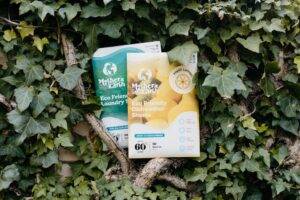Investing in German real estate has garnered widespread attention among domestic and international buyers – Germany has emerged as a prime destination for individuals seeking residential properties or rental investments. So now, it’s time to figure out how to jump on this opportunity bandwagon rather than “just looking for that apartment“!
In this comprehensive guide, we’ll take you through a detailed step-by-step process for investing in German real estate (but if you’d rather head straight to the expert, then reach out to Axel from PerFinEx – he’s great – he also put this blog post together for us).
We will also dive into essential tax strategies that can really impact your property investments. By understanding these tax tricks, you’ll be better equipped to navigate the intricacies of buying properties in Germany and maximize your investment potential.
Step-by-Step Guide to Investing in German Real Estate ⬇️
Step 1: Decide Between a Home or Investment Property
The first step is choosing whether you want to:
➡️ Buy a home for yourself or
➡️ An investment property to rent out
These goals are very different, and combining them can lead to costly mistakes. A home purchase is often emotional, driven by a desire to avoid “wasting money on rent.” However, this idea is misleading. When buying a home for personal use, the choice might not follow financial logic, unlike buying an investment property, which should be based strictly on financial value. So, keep these goals separate: make a personal choice for your home and a business decision for investment properties. This clarity will guide you to make better choices.
Step 2: Know Exactly What You Want
Once you have your goal, get specific about what kind of property you’re looking for.
➡️ Are you considering a fixer-upper with lower upfront costs but requiring more renovation work? Renovations can be expensive—upgrading an old bathroom alone could cost around €100,000.
➡️ New properties cost more upfront but usually need fewer upgrades.
For investors, the choice is similar. New buildings come with benefits like potential government subsidies and tax deductions, while renovations can offer more deductions for high-income earners, especially those in the 42% tax bracket (income above €67,000 annually).
Done right, renovation expenses can be tax-deductible, making it a smart option for those who qualify.
Need more guidance? You can book a free meeting with PerFinEx for personalized advice.
Step 3: Get Your Finances Ready
With your goal in mind—whether it’s buying a home or an investment property—it’s time to organize your finances. This should ideally be the first step, but people often put it off until they have a clear goal. Having a clear financial plan is key to success. Begin by paying down debts and building savings (aka. figuring out how much you’re going to need to save). It may feel tough at first, but this groundwork will help you reach your real estate goals faster.
Step 4: Choose the Right Property
Once you know your budget, you can start looking at properties. The popular website Immoscout is a good place to start, but the best deals often come from personal networks, local ads, and connections with real estate experts. Remember that finding a property that matches 100% of your expectations is rare, so aim for one that meets at least 80% of your needs.
For example, PerFinEx offers access to such off-market properties, providing you with opportunities for an after-tax return of over 20%. You can book a free meeting with PerFinEx to get more details about this. One tip from PerFinEx from years of working with first-time real estate buyers: free yourself from the expectation of finding a property that is 100% what you’re looking for. This is much harder for homeowners due to the emotional aspect, but it’s crucial to understand that a 100% perfect property doesn’t exist. Even if it did, it would likely be prohibitively expensive. Aim to meet at least 80% of your expectations to make the property search much easier.
Step 5: Find the Right Mortgage
When you’re ready to buy, it’s time to secure a mortgage. It’s best to find a property first, as banks want specifics. While low-interest rates are appealing, think about the long-term—mortgages typically last 20–30 years, and a slightly higher rate with flexibility may be better if your needs change.
TIP: Watch this video to understand how much real estate you can afford. Once you’ve identified your property, PerFinEx can help you navigate the mortgage process with over 750 different banks in Germany.
Step 6: Check Profitability or Savings
Now, calculate your potential profit if it’s a rental, or savings if it’s your own home.
For investors, this involves a full analysis of costs and potential income, like rent, mortgage payments, and maintenance costs. Use advanced tools to make sure you’re seeing the full picture, and if you need support, tools like PerFinEx’s calculator can be helpful (here’s a guide on how to work the tool).
Step 7: Make the Purchase
Finally, to complete your purchase, you’ll sign the documents with a notary. This is a big commitment, so review everything carefully, including mortgage terms, fees, and any extra expenses. This is just the beginning of property ownership—be prepared for responsibilities like maintenance and property management. Take your time, stay informed, and enjoy the rewards of your investment.
Step 8: Post-Purchase and Expanding to More Properties
After signing the purchase documents, there are several critical follow-up steps. First, cover all the additional fees—such as notary costs, property transfer taxes, any applicable agent fees, and the final payment owed to the seller. Keep a strong cash reserve for unanticipated expenses like maintenance or upgrades that may arise suddenly.
Once settled, it’s essential to keep monitoring the financial health of your property. Maintaining cash reserves and staying on top of financial obligations is key to long-term real estate success. If you’re considering acquiring additional properties, experience from your initial purchase often makes future investments easier and more efficient.
7 Real Estate Tax Strategies in Germany
1️⃣ Choosing the Right Property Type
The type of property you buy impacts your tax strategy. Renovations on existing buildings can yield immediate tax benefits. New constructions may offer slower depreciation but may be more advantageous if you’re in a lower tax bracket.
If you need help finding the best property for your individual situation, feel free to book a meeting with PerFinEx.
2️⃣ Limit Renovations to Under 15% of Property Value
Keep renovation costs below 15% of the property value (excluding land) for immediate tax deductions, which can maximize tax benefits.
3️⃣ Separate Furniture Costs
Listing furniture separately in the purchase agreement can lower land tax and accelerate depreciation, increasing tax benefits.
4️⃣ Consider a Monument Property (Denkmal)
Buying a Denkmal can provide accelerated depreciation and substantial tax benefits, although it may involve stricter renovation regulations.
5️⃣ Private vs. Corporate Ownership
Corporate property ownership often allows for lower tax rates on rental income but includes higher setup and administrative costs, making it best suited for large portfolios.
6️⃣ Ehegattenschaukel Strategy
By purchasing properties individually within a spousal unit and selling properties between spouses, families can avoid certain taxes and optimize tax benefits on capital gains.
7️⃣ Gift Property Before Passing
Gifting properties to heirs while alive reduces inheritance taxes, with allowances of up to €400,000 every 10 years.
So what do you need to know? Entering the German real estate market as a foreign investor offers substantial opportunities for growth and financial stability. Germany’s reputation for economic stability, combined with favorable interest rates and high living standards, makes it an attractive destination for both individual buyers and rental property investors.
So while we’ve just outlined the essential steps and tax strategies for investing in German real estate, now it’s time for you to apply these strategies effectively. Still left with questions?
Jump on a free call with Axel at PerFinEx, and he can help you approach the German real estate market with confidence!





